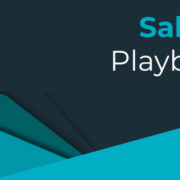Deconstructing The 4 Most Common Sales Interview Questions
Popular Interview Questions
This article will fully summarize the four most common sales interview questions and give you the best possible answers!
Conduct Your Job Interview Like You Would The Sales Process
Whether you love or hate it, interviews are essential to the hiring process. That’s why you must be well prepared to handle any interview questions coming your way when you’re trying to get a job in tech sales.
Failure to do so will not bode well, as your potential employer might worry about how you will handle objections while on the job. How you take the questions thrown at you during the interview could make or break your chances of getting an offer, so make sure to answer them confidently.
Keep in mind that in a sense, the interview is very much like a sale, wherein you are the product and the company is the buyer.
Leverage this dynamic to your advantage and use the interview as a platform to showcase the various strategies and tactics you would use on the job. What better way to prove you’re the best candidate than to have the interviewer see you in action?
Below is a short list of 4 general questions asked during many tech sales interviews. Let’s take a moment to dig deeper into each one and identify the best ways to approach them.

1. Why do you want to be in sales?
This question is an absolute classic and is almost guaranteed to come up during your interview. In asking this question, the interviewer is trying to understand your motivation. What about sales excites you and makes you want to get out of bed every morning?
Don’t stop with simple and vague statements like:
“I live and breathe sales” or “I’m just a natural-born salesperson”.
Provide examples that back up your claims. For example, what have you done that demonstrates your excellent sales abilities?
Why have these events influenced your decision to pursue a career in sales? What about your character and skills make you a good fit for a sales career instead of another field?
To ace this question, you need to leave the interviewer feeling there will be no need to worry about your motivation should you get hired.
They need to have that sense of confidence that even if they’re not always around to see you, you’ll have the ability and the self-motivation to stay focused and continue to perform.

2. What do you know about our company?
This question can be phrased in many ways, but ultimately, the interviewer is trying to see how well prepared you are. Therefore, use this question as a springboard to demonstrate your research prowess since it’s an extremely valuable skill for any tech sales professional.
If the company is public, you can read through their annual report or 10-K to find some golden nuggets of information, like their goals for the year or what they foresee as being some of their biggest challenges.
If instead, you’re interviewing for a private company or even a startup, there is still a wide range of resources at your disposal. Crunchbase is an excellent website for information on companies, especially early tech startups. Owler is another excellent resource you can use to find recent news about any company.
And of course, checking the company website and doing a quick Google search for the company name is a great way to get a high-level understanding of their business. At the very least, you want to understand who their customers are and how they differ from the other competitors in the space.
Try your best to piece things you find in your research together to show off your analytical skills and ability to see the bigger picture. For example, suppose you can prove you have a good understanding of the company’s environment and what its current situation means from a business perspective. In that case, there will be no doubt in the interviewer’s mind that you can do the same for your prospects and have meaningful business conversations.

3. When was the last time you took a significant risk that didn’t pan out?
Another one that would be very similar to this would be the “What’s your greatest weakness?” question. Both of these questions require you to have a strong enough understanding of yourself to recognize your limitations. All of us are human, and none of us are perfect, but recognizing where your imperfections lie requires a strong sense of self-awareness.
Being able to point out where you could improve also demonstrates your ability to be coached which is something many hiring managers like to see in their candidates. On the other hand, someone who is completely stuck in their ways and unwilling to re-evaluate their approach can be tough to work with. Therefore, if you give the impression that you’re one of these candidates, the hiring manager may pass on you to save them from future frustrations.
This particular question differs from the ‘greatest weakness’ question because it goes one step further by gauging your risk tolerance and ability to take calculated risks. When listening to your experience, the interviewer tries to understand how you approach a risky situation, what you take into consideration, and how you ultimately factor everything into your final decision.
There is no one correct answer to this question, but there is one thing you always need to do with your response. Be clear and convincing.
Just like with question 1 on this list, there is no one correct answer or approach to this question, possibly even more so because it depends greatly on the company’s and interviewer’s tolerance for risk. Whether risk-loving or risk-averse, you want to provide an example that closely aligns with their preferences.
Your research can sometimes give you a good sense of the company’s risk tolerance. Additionally, if you’re good at reading people, you can often tell by the interviewer’s body language how aggressive of a personality they have. The more aggressive they seem, the more likely they’ll have a higher tolerance for risk. If all else fails and you can’t understand where they stand, err more on the higher risk side. After all, you are trying to work in sales. Sales managers would instead hire someone who can take action on a well-thought-out scenario than the other way around, especially if the candidate has already proven that they are very coachable.
To prove that you are indeed coachable, think back to an experience that didn’t go as you wanted and explain the lessons you learned from that experience. Bonus points if you can even talk about how you continue to use those lessons to this day. By doing this, you’re illustrating that you are someone who inherently focuses on self-improvement and embraces change for the better.

4. Do you have any questions for me?
Though seemingly innocuous, this question can be pretty loaded. A candidate’s answers to this question reveal a lot about their character.
A lot of the time, you may have legitimate questions about the job that are left unanswered, and this is the right time to ask those questions. However, as a fair warning, it would be highly advisable not to make every question about the company’s benefits or what you stand to gain from the position. Instead, though they may be necessary, try to sprinkle in some additional questions around anything unclear about how you’d actually do your job. You can probably get many simple answers to your benefits questions by doing a little research on the company’s Glassdoor profile.
That way, you can ask other questions more relevant to the job at hand during the interview. For example, what tools will you be using? What are everyday struggles they see with new hires coming on board? What have others before you done to succeed? Try to think more along these lines, as this will convey to your interviewer that you are serious and excited about the work.
This is almost always the last question asked during the interview, so don’t squander the opportunity to make a great final impression. Instead, utilize the peak-end rule to your advantage and go out with a bang to ensure you have the highest chance of getting that job offer.
Lastly, remember that just as much as the company is trying to evaluate your fit into their business and available role, you should also be assessing the fit of the position to your personal preferences. Everyone is different, so if certain things about a job are essential for you, make sure to touch on those as well. The last thing you’d want to do is hastily join an organization just for the sake of getting a new job only to find out soon after that you made the wrong decision and, even worse, may have to go through the whole job search process again because you joined the lousy company.
PS – Check out this video below by Richard McMunn for another in-depth look at the most common sales interview questions and the best ways to answer them:
Get approached by tech companies offering tech sales jobs. Create your Rainmakers profile now!










